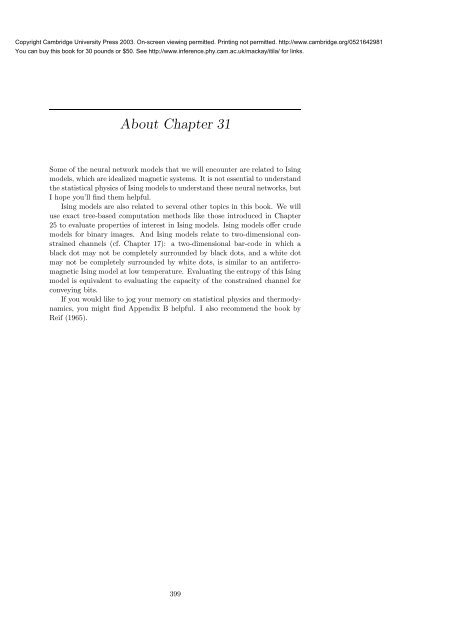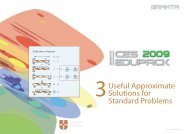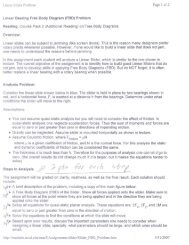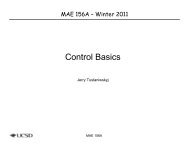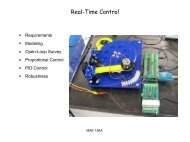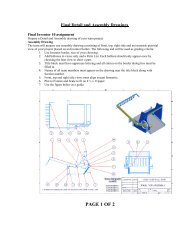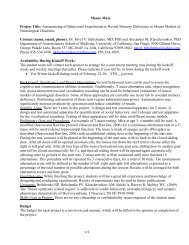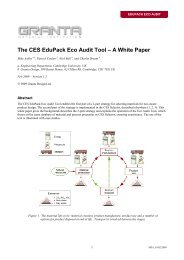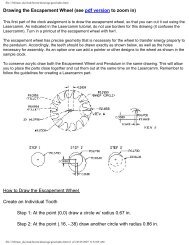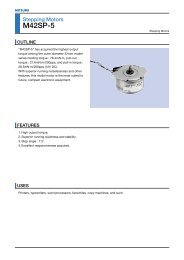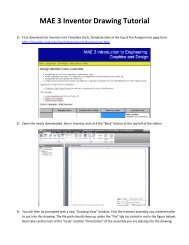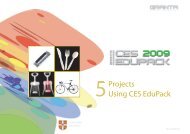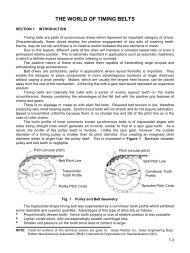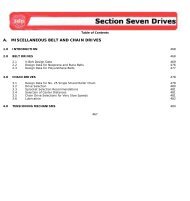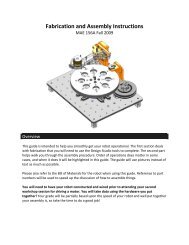- Page 1 and 2:
Copyright Cambridge University Pres
- Page 3 and 4:
Copyright Cambridge University Pres
- Page 5 and 6:
Copyright Cambridge University Pres
- Page 7 and 8:
Copyright Cambridge University Pres
- Page 9 and 10:
Copyright Cambridge University Pres
- Page 11 and 12:
Copyright Cambridge University Pres
- Page 13 and 14:
Copyright Cambridge University Pres
- Page 15 and 16:
Copyright Cambridge University Pres
- Page 17 and 18:
Copyright Cambridge University Pres
- Page 19 and 20:
Copyright Cambridge University Pres
- Page 21 and 22:
Copyright Cambridge University Pres
- Page 23 and 24:
Copyright Cambridge University Pres
- Page 25 and 26:
Copyright Cambridge University Pres
- Page 27 and 28:
Copyright Cambridge University Pres
- Page 29 and 30:
Copyright Cambridge University Pres
- Page 31 and 32:
Copyright Cambridge University Pres
- Page 33 and 34:
Copyright Cambridge University Pres
- Page 35 and 36:
Copyright Cambridge University Pres
- Page 37 and 38:
Copyright Cambridge University Pres
- Page 39 and 40:
Copyright Cambridge University Pres
- Page 41 and 42:
Copyright Cambridge University Pres
- Page 43 and 44:
Copyright Cambridge University Pres
- Page 45 and 46:
Copyright Cambridge University Pres
- Page 47 and 48:
Copyright Cambridge University Pres
- Page 49 and 50:
Copyright Cambridge University Pres
- Page 51 and 52:
Copyright Cambridge University Pres
- Page 53 and 54:
Copyright Cambridge University Pres
- Page 55 and 56:
Copyright Cambridge University Pres
- Page 57 and 58:
Copyright Cambridge University Pres
- Page 59 and 60:
Copyright Cambridge University Pres
- Page 61 and 62:
Copyright Cambridge University Pres
- Page 63 and 64:
Copyright Cambridge University Pres
- Page 65 and 66:
Copyright Cambridge University Pres
- Page 67 and 68:
Copyright Cambridge University Pres
- Page 69 and 70:
Copyright Cambridge University Pres
- Page 71 and 72:
Copyright Cambridge University Pres
- Page 73 and 74:
Copyright Cambridge University Pres
- Page 75 and 76:
Copyright Cambridge University Pres
- Page 77 and 78:
Copyright Cambridge University Pres
- Page 79 and 80:
Copyright Cambridge University Pres
- Page 81 and 82:
Copyright Cambridge University Pres
- Page 83 and 84:
Copyright Cambridge University Pres
- Page 85 and 86:
Copyright Cambridge University Pres
- Page 87 and 88:
Copyright Cambridge University Pres
- Page 89 and 90:
Copyright Cambridge University Pres
- Page 91 and 92:
Copyright Cambridge University Pres
- Page 93 and 94:
Copyright Cambridge University Pres
- Page 95 and 96:
Copyright Cambridge University Pres
- Page 97 and 98:
Copyright Cambridge University Pres
- Page 99 and 100:
Copyright Cambridge University Pres
- Page 101 and 102:
Copyright Cambridge University Pres
- Page 103 and 104:
Copyright Cambridge University Pres
- Page 105 and 106:
Copyright Cambridge University Pres
- Page 107 and 108:
Copyright Cambridge University Pres
- Page 109 and 110:
Copyright Cambridge University Pres
- Page 111 and 112:
Copyright Cambridge University Pres
- Page 113 and 114:
Copyright Cambridge University Pres
- Page 115 and 116:
Copyright Cambridge University Pres
- Page 117 and 118:
Copyright Cambridge University Pres
- Page 119 and 120:
Copyright Cambridge University Pres
- Page 121 and 122:
Copyright Cambridge University Pres
- Page 123 and 124:
Copyright Cambridge University Pres
- Page 125 and 126:
Copyright Cambridge University Pres
- Page 127 and 128:
Copyright Cambridge University Pres
- Page 129 and 130:
Copyright Cambridge University Pres
- Page 131 and 132:
Copyright Cambridge University Pres
- Page 133 and 134:
Copyright Cambridge University Pres
- Page 135 and 136:
Copyright Cambridge University Pres
- Page 137 and 138:
Copyright Cambridge University Pres
- Page 139 and 140:
Copyright Cambridge University Pres
- Page 141 and 142:
Copyright Cambridge University Pres
- Page 143 and 144:
Copyright Cambridge University Pres
- Page 145 and 146:
Copyright Cambridge University Pres
- Page 147 and 148:
Copyright Cambridge University Pres
- Page 149 and 150:
Copyright Cambridge University Pres
- Page 151 and 152:
Copyright Cambridge University Pres
- Page 153 and 154:
Copyright Cambridge University Pres
- Page 155 and 156:
Copyright Cambridge University Pres
- Page 157 and 158:
Copyright Cambridge University Pres
- Page 159 and 160:
Copyright Cambridge University Pres
- Page 161 and 162:
Copyright Cambridge University Pres
- Page 163 and 164:
Copyright Cambridge University Pres
- Page 165 and 166:
Copyright Cambridge University Pres
- Page 167 and 168:
Copyright Cambridge University Pres
- Page 169 and 170:
Copyright Cambridge University Pres
- Page 171 and 172:
Copyright Cambridge University Pres
- Page 173 and 174:
Copyright Cambridge University Pres
- Page 175 and 176:
Copyright Cambridge University Pres
- Page 177 and 178:
Copyright Cambridge University Pres
- Page 179 and 180:
Copyright Cambridge University Pres
- Page 181 and 182:
Copyright Cambridge University Pres
- Page 183 and 184:
Copyright Cambridge University Pres
- Page 185 and 186:
Copyright Cambridge University Pres
- Page 187 and 188:
Copyright Cambridge University Pres
- Page 189 and 190:
Copyright Cambridge University Pres
- Page 191 and 192:
Copyright Cambridge University Pres
- Page 193 and 194:
Copyright Cambridge University Pres
- Page 195 and 196:
Copyright Cambridge University Pres
- Page 197 and 198:
Copyright Cambridge University Pres
- Page 199 and 200:
Copyright Cambridge University Pres
- Page 201 and 202:
Copyright Cambridge University Pres
- Page 203 and 204:
Copyright Cambridge University Pres
- Page 205 and 206:
Copyright Cambridge University Pres
- Page 207 and 208:
Copyright Cambridge University Pres
- Page 209 and 210:
Copyright Cambridge University Pres
- Page 211 and 212:
Copyright Cambridge University Pres
- Page 213 and 214:
Copyright Cambridge University Pres
- Page 215 and 216:
Copyright Cambridge University Pres
- Page 217 and 218:
Copyright Cambridge University Pres
- Page 219 and 220:
Copyright Cambridge University Pres
- Page 221 and 222:
Copyright Cambridge University Pres
- Page 223 and 224:
Copyright Cambridge University Pres
- Page 225 and 226:
Copyright Cambridge University Pres
- Page 227 and 228:
Copyright Cambridge University Pres
- Page 229 and 230:
Copyright Cambridge University Pres
- Page 231 and 232:
Copyright Cambridge University Pres
- Page 233 and 234:
Copyright Cambridge University Pres
- Page 235 and 236:
Copyright Cambridge University Pres
- Page 237 and 238:
Copyright Cambridge University Pres
- Page 239 and 240:
Copyright Cambridge University Pres
- Page 241 and 242:
Copyright Cambridge University Pres
- Page 243 and 244:
Copyright Cambridge University Pres
- Page 245 and 246:
Copyright Cambridge University Pres
- Page 247 and 248:
Copyright Cambridge University Pres
- Page 249 and 250:
Copyright Cambridge University Pres
- Page 251 and 252:
Copyright Cambridge University Pres
- Page 253 and 254:
Copyright Cambridge University Pres
- Page 255 and 256:
Copyright Cambridge University Pres
- Page 257 and 258:
Copyright Cambridge University Pres
- Page 259 and 260:
Copyright Cambridge University Pres
- Page 261 and 262:
Copyright Cambridge University Pres
- Page 263 and 264:
Copyright Cambridge University Pres
- Page 265 and 266:
Copyright Cambridge University Pres
- Page 267 and 268:
Copyright Cambridge University Pres
- Page 269 and 270:
Copyright Cambridge University Pres
- Page 271 and 272:
Copyright Cambridge University Pres
- Page 273 and 274:
Copyright Cambridge University Pres
- Page 275 and 276:
Copyright Cambridge University Pres
- Page 277 and 278:
Copyright Cambridge University Pres
- Page 279 and 280:
Copyright Cambridge University Pres
- Page 281 and 282:
Copyright Cambridge University Pres
- Page 283 and 284:
Copyright Cambridge University Pres
- Page 285 and 286:
Copyright Cambridge University Pres
- Page 287 and 288:
Copyright Cambridge University Pres
- Page 289 and 290:
Copyright Cambridge University Pres
- Page 291 and 292:
Copyright Cambridge University Pres
- Page 293 and 294:
Copyright Cambridge University Pres
- Page 295 and 296:
Copyright Cambridge University Pres
- Page 297 and 298:
Copyright Cambridge University Pres
- Page 299 and 300:
Copyright Cambridge University Pres
- Page 301 and 302:
Copyright Cambridge University Pres
- Page 303 and 304:
Copyright Cambridge University Pres
- Page 305 and 306:
Copyright Cambridge University Pres
- Page 307 and 308:
Copyright Cambridge University Pres
- Page 309 and 310:
Copyright Cambridge University Pres
- Page 311 and 312:
Copyright Cambridge University Pres
- Page 313 and 314:
Copyright Cambridge University Pres
- Page 315 and 316:
Copyright Cambridge University Pres
- Page 317 and 318:
Copyright Cambridge University Pres
- Page 319 and 320:
Copyright Cambridge University Pres
- Page 321 and 322:
Copyright Cambridge University Pres
- Page 323 and 324:
Copyright Cambridge University Pres
- Page 325 and 326:
Copyright Cambridge University Pres
- Page 327 and 328:
Copyright Cambridge University Pres
- Page 329 and 330:
Copyright Cambridge University Pres
- Page 331 and 332:
Copyright Cambridge University Pres
- Page 333 and 334:
Copyright Cambridge University Pres
- Page 335 and 336:
Copyright Cambridge University Pres
- Page 337 and 338:
Copyright Cambridge University Pres
- Page 339 and 340:
Copyright Cambridge University Pres
- Page 341 and 342:
Copyright Cambridge University Pres
- Page 343 and 344:
Copyright Cambridge University Pres
- Page 345 and 346:
Copyright Cambridge University Pres
- Page 347 and 348:
Copyright Cambridge University Pres
- Page 349 and 350:
Copyright Cambridge University Pres
- Page 351 and 352:
Copyright Cambridge University Pres
- Page 353 and 354:
Copyright Cambridge University Pres
- Page 355 and 356:
Copyright Cambridge University Pres
- Page 357 and 358:
Copyright Cambridge University Pres
- Page 359 and 360: Copyright Cambridge University Pres
- Page 361 and 362: Copyright Cambridge University Pres
- Page 363 and 364: Copyright Cambridge University Pres
- Page 365 and 366: Copyright Cambridge University Pres
- Page 367 and 368: Copyright Cambridge University Pres
- Page 369 and 370: Copyright Cambridge University Pres
- Page 371 and 372: Copyright Cambridge University Pres
- Page 373 and 374: Copyright Cambridge University Pres
- Page 375 and 376: Copyright Cambridge University Pres
- Page 377 and 378: Copyright Cambridge University Pres
- Page 379 and 380: Copyright Cambridge University Pres
- Page 381 and 382: Copyright Cambridge University Pres
- Page 383 and 384: Copyright Cambridge University Pres
- Page 385 and 386: Copyright Cambridge University Pres
- Page 387 and 388: Copyright Cambridge University Pres
- Page 389 and 390: Copyright Cambridge University Pres
- Page 391 and 392: Copyright Cambridge University Pres
- Page 393 and 394: Copyright Cambridge University Pres
- Page 395 and 396: Copyright Cambridge University Pres
- Page 397 and 398: Copyright Cambridge University Pres
- Page 399 and 400: Copyright Cambridge University Pres
- Page 401 and 402: Copyright Cambridge University Pres
- Page 403 and 404: Copyright Cambridge University Pres
- Page 405 and 406: Copyright Cambridge University Pres
- Page 407 and 408: Copyright Cambridge University Pres
- Page 409: Copyright Cambridge University Pres
- Page 413 and 414: Copyright Cambridge University Pres
- Page 415 and 416: Copyright Cambridge University Pres
- Page 417 and 418: Copyright Cambridge University Pres
- Page 419 and 420: Copyright Cambridge University Pres
- Page 421 and 422: Copyright Cambridge University Pres
- Page 423 and 424: Copyright Cambridge University Pres
- Page 425 and 426: Copyright Cambridge University Pres
- Page 427 and 428: Copyright Cambridge University Pres
- Page 429 and 430: Copyright Cambridge University Pres
- Page 431 and 432: Copyright Cambridge University Pres
- Page 433 and 434: Copyright Cambridge University Pres
- Page 435 and 436: Copyright Cambridge University Pres
- Page 437 and 438: Copyright Cambridge University Pres
- Page 439 and 440: Copyright Cambridge University Pres
- Page 441 and 442: Copyright Cambridge University Pres
- Page 443 and 444: Copyright Cambridge University Pres
- Page 445 and 446: Copyright Cambridge University Pres
- Page 447 and 448: Copyright Cambridge University Pres
- Page 449 and 450: Copyright Cambridge University Pres
- Page 451 and 452: Copyright Cambridge University Pres
- Page 453 and 454: Copyright Cambridge University Pres
- Page 455 and 456: Copyright Cambridge University Pres
- Page 457 and 458: Copyright Cambridge University Pres
- Page 459 and 460: Copyright Cambridge University Pres
- Page 461 and 462:
Copyright Cambridge University Pres
- Page 463 and 464:
Copyright Cambridge University Pres
- Page 465 and 466:
Copyright Cambridge University Pres
- Page 467 and 468:
Copyright Cambridge University Pres
- Page 469 and 470:
Copyright Cambridge University Pres
- Page 471 and 472:
Copyright Cambridge University Pres
- Page 473 and 474:
Copyright Cambridge University Pres
- Page 475 and 476:
Copyright Cambridge University Pres
- Page 477 and 478:
Copyright Cambridge University Pres
- Page 479 and 480:
Copyright Cambridge University Pres
- Page 481 and 482:
Copyright Cambridge University Pres
- Page 483 and 484:
Copyright Cambridge University Pres
- Page 485 and 486:
Copyright Cambridge University Pres
- Page 487 and 488:
Copyright Cambridge University Pres
- Page 489 and 490:
Copyright Cambridge University Pres
- Page 491 and 492:
Copyright Cambridge University Pres
- Page 493 and 494:
Copyright Cambridge University Pres
- Page 495 and 496:
Copyright Cambridge University Pres
- Page 497 and 498:
Copyright Cambridge University Pres
- Page 499 and 500:
Copyright Cambridge University Pres
- Page 501 and 502:
Copyright Cambridge University Pres
- Page 503 and 504:
Copyright Cambridge University Pres
- Page 505 and 506:
Copyright Cambridge University Pres
- Page 507 and 508:
Copyright Cambridge University Pres
- Page 509 and 510:
Copyright Cambridge University Pres
- Page 511 and 512:
Copyright Cambridge University Pres
- Page 513 and 514:
Copyright Cambridge University Pres
- Page 515 and 516:
Copyright Cambridge University Pres
- Page 517 and 518:
Copyright Cambridge University Pres
- Page 519 and 520:
Copyright Cambridge University Pres
- Page 521 and 522:
Copyright Cambridge University Pres
- Page 523 and 524:
Copyright Cambridge University Pres
- Page 525 and 526:
Copyright Cambridge University Pres
- Page 527 and 528:
Copyright Cambridge University Pres
- Page 529 and 530:
Copyright Cambridge University Pres
- Page 531 and 532:
Copyright Cambridge University Pres
- Page 533 and 534:
Copyright Cambridge University Pres
- Page 535 and 536:
Copyright Cambridge University Pres
- Page 537 and 538:
Copyright Cambridge University Pres
- Page 539 and 540:
Copyright Cambridge University Pres
- Page 541 and 542:
Copyright Cambridge University Pres
- Page 543 and 544:
Copyright Cambridge University Pres
- Page 545 and 546:
Copyright Cambridge University Pres
- Page 547 and 548:
Copyright Cambridge University Pres
- Page 549 and 550:
Copyright Cambridge University Pres
- Page 551 and 552:
Copyright Cambridge University Pres
- Page 553 and 554:
Copyright Cambridge University Pres
- Page 555 and 556:
Copyright Cambridge University Pres
- Page 557 and 558:
Copyright Cambridge University Pres
- Page 559 and 560:
Copyright Cambridge University Pres
- Page 561 and 562:
Copyright Cambridge University Pres
- Page 563 and 564:
Copyright Cambridge University Pres
- Page 565 and 566:
Copyright Cambridge University Pres
- Page 567 and 568:
Copyright Cambridge University Pres
- Page 569 and 570:
Copyright Cambridge University Pres
- Page 571 and 572:
Copyright Cambridge University Pres
- Page 573 and 574:
Copyright Cambridge University Pres
- Page 575 and 576:
Copyright Cambridge University Pres
- Page 577 and 578:
Copyright Cambridge University Pres
- Page 579 and 580:
Copyright Cambridge University Pres
- Page 581 and 582:
Copyright Cambridge University Pres
- Page 583 and 584:
Copyright Cambridge University Pres
- Page 585 and 586:
Copyright Cambridge University Pres
- Page 587 and 588:
Copyright Cambridge University Pres
- Page 589 and 590:
Copyright Cambridge University Pres
- Page 591 and 592:
Copyright Cambridge University Pres
- Page 593 and 594:
Copyright Cambridge University Pres
- Page 595 and 596:
Copyright Cambridge University Pres
- Page 597 and 598:
Copyright Cambridge University Pres
- Page 599 and 600:
Copyright Cambridge University Pres
- Page 601 and 602:
Copyright Cambridge University Pres
- Page 603 and 604:
Copyright Cambridge University Pres
- Page 605 and 606:
Copyright Cambridge University Pres
- Page 607 and 608:
Copyright Cambridge University Pres
- Page 609 and 610:
Copyright Cambridge University Pres
- Page 611 and 612:
Copyright Cambridge University Pres
- Page 613 and 614:
Copyright Cambridge University Pres
- Page 615 and 616:
Copyright Cambridge University Pres
- Page 617 and 618:
Copyright Cambridge University Pres
- Page 619 and 620:
Copyright Cambridge University Pres
- Page 621 and 622:
Copyright Cambridge University Pres
- Page 623 and 624:
Copyright Cambridge University Pres
- Page 625 and 626:
Copyright Cambridge University Pres
- Page 627 and 628:
Copyright Cambridge University Pres
- Page 629 and 630:
Copyright Cambridge University Pres
- Page 631 and 632:
Copyright Cambridge University Pres
- Page 633 and 634:
Copyright Cambridge University Pres
- Page 635 and 636:
Copyright Cambridge University Pres
- Page 637 and 638:
Copyright Cambridge University Pres
- Page 639 and 640:
Copyright Cambridge University Pres


